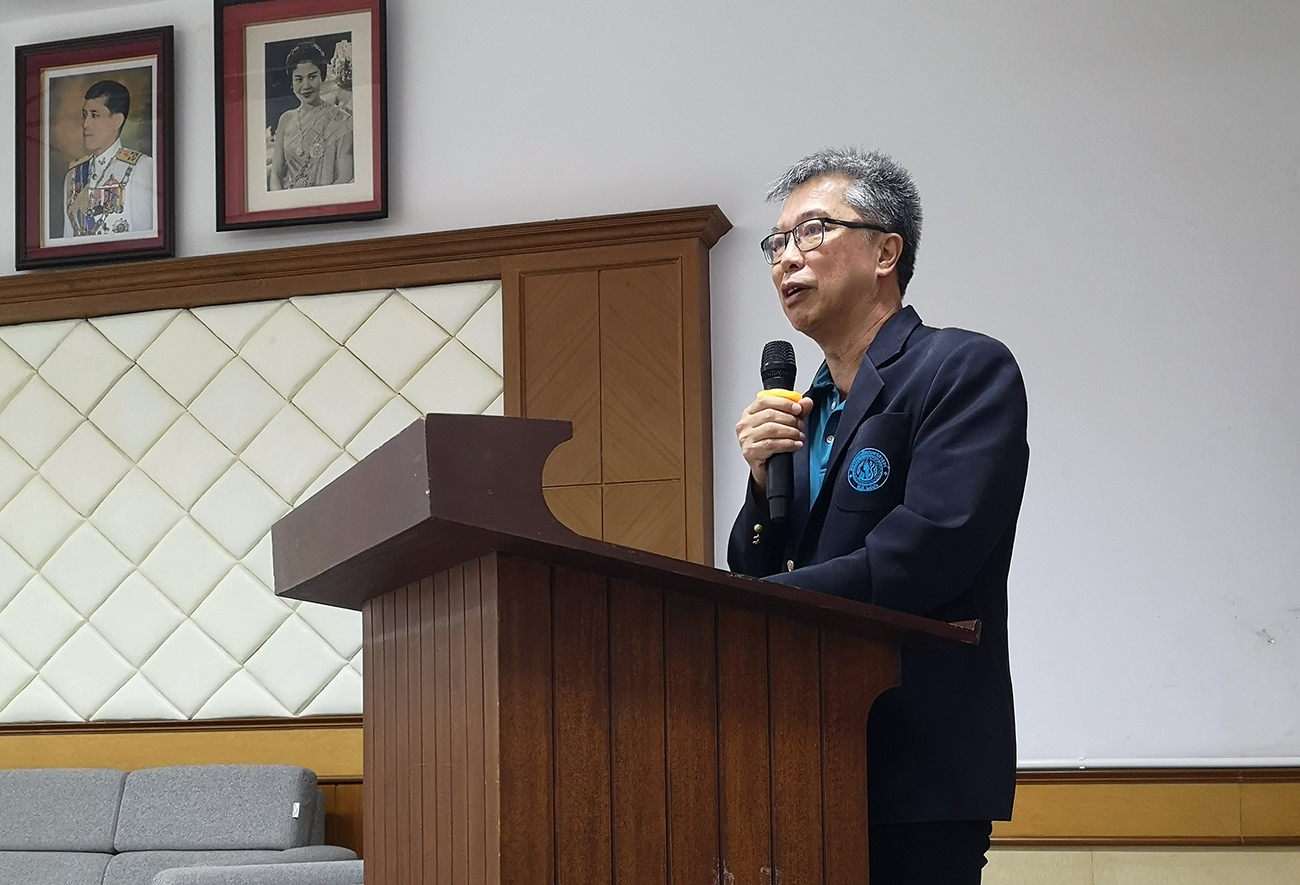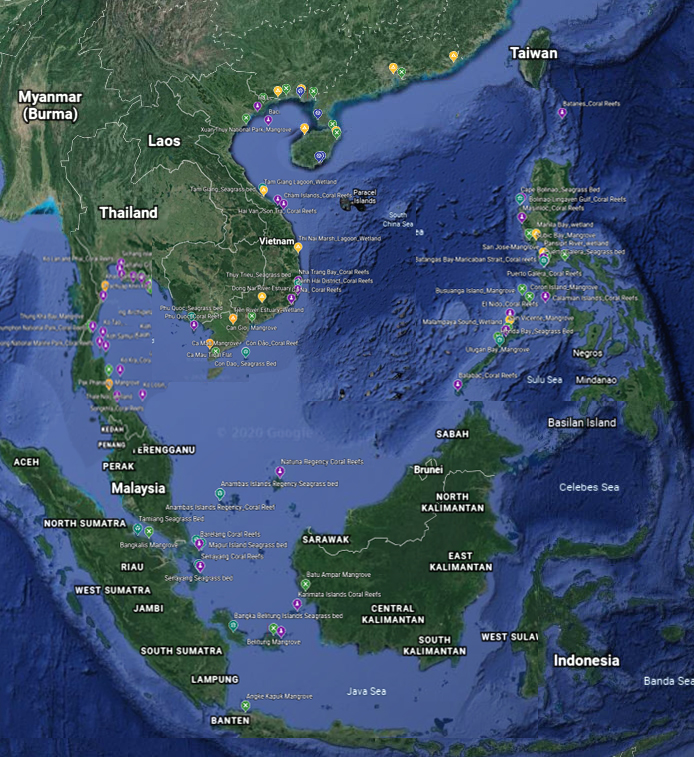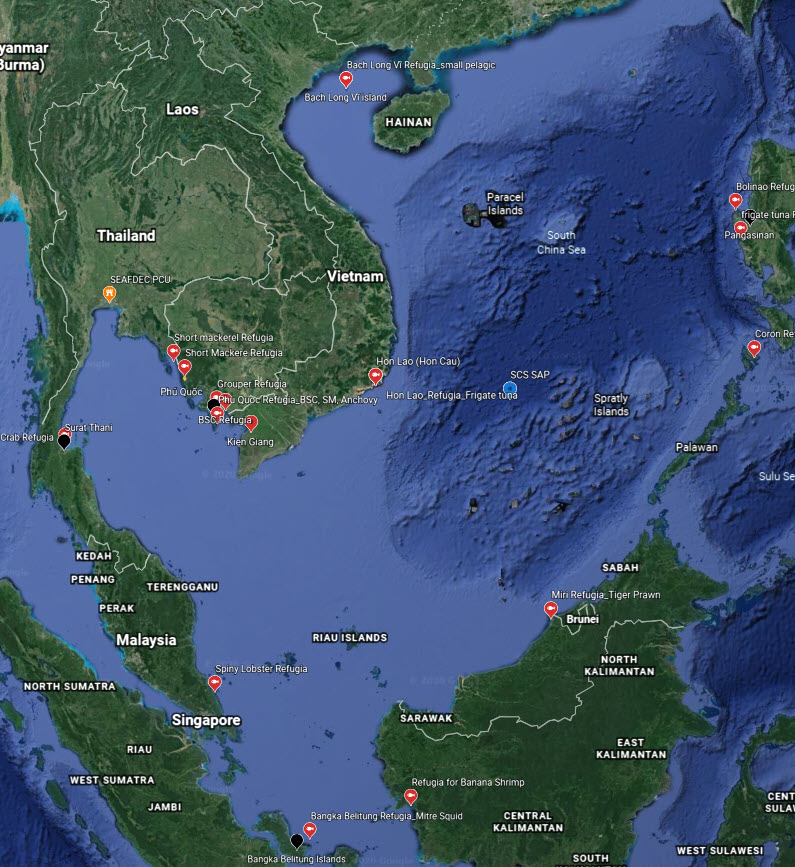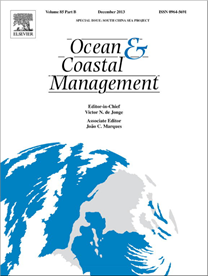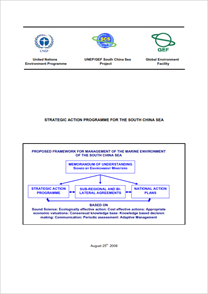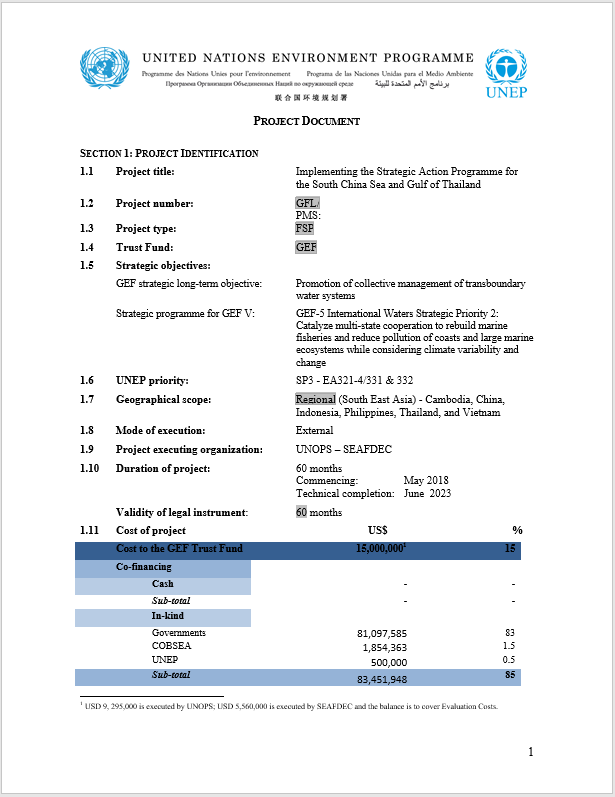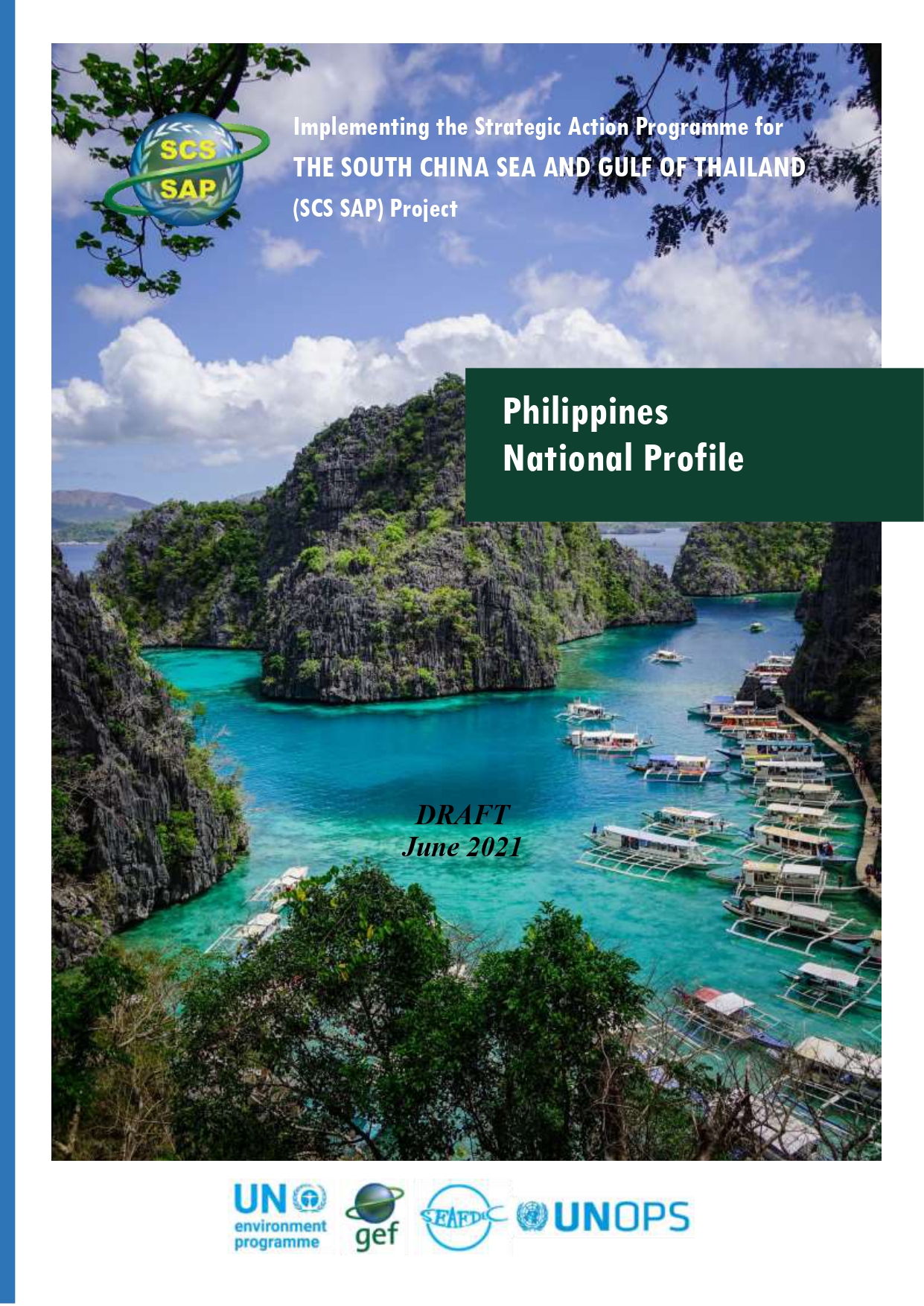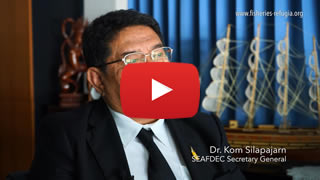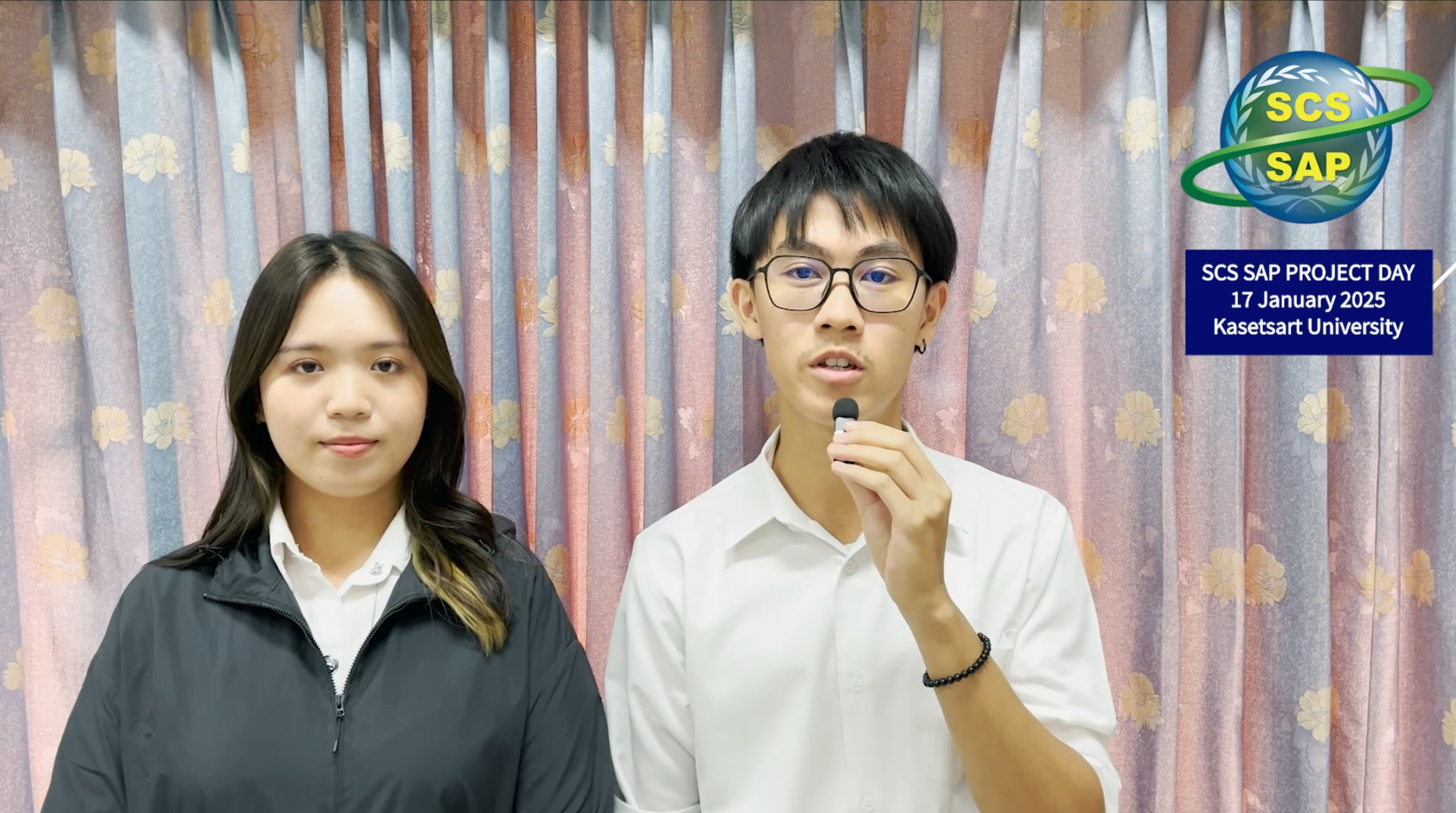We hosted a special Project Day at Kasetsart University's Faculty of Fisheries on 17 January 2025, welcoming the next generation of marine scientists and conservationists. The event brought together over 70 participants, including undergraduate and PhD students, faculty members, and professionals from key environmental organizations.
The day began with a presentation by SCS SAP Project Manager Anders Poulsen, who highlighted the critical importance of coastal ecosystems, emphasizing that 40% of humanity relies on them for their livelihoods. Dr. Vo Si Tuan, Regional Scientific Coordinator, then provided a deep dive into the challenges facing the South China Sea's Large Marine Ecosystems. The afternoon featured interactive discussions, with students sharing their innovative ideas for marine conservation and exploring potential internship opportunities with SCS SAP. This event solidified the partnership between SCS-SAP and Kasetsart University, paving the way for collaborative research, innovative solutions, and regional networking to address the urgent challenges facing our oceans.
Students Raksita Prasongphol, Sirakan Supundit, and Waris Kobayashi underscored the passion and commitment of these future marine scientists. Dr. Suriyan Tunkijjanukij, Dean of Faculty of Fisheries, emphasized the importance of connecting classroom learning with real-world conservation efforts.
The SCS SAP Project Day at Kasetsart University was a resounding success, demonstrating the power of collaboration and youth engagement in protecting our oceans.
FULL STORY
The “Implementing the Strategic Action Programme for the South China Sea and Gulf of Thailand” (SCS SAP Project) opened its doors to the next generation of marine scientists and conservationists at its home base in Kasetsart University's Faculty of Fisheries on 17 January 2025. Since establishing its headquarters within the Faculty in September 2024, the Project has sought to create meaningful connections with students, and this special outreach day brought together over 70 participants including undergraduates, PhD candidates, faculty members, and professionals from key environmental organizations. The event aimed to showcase real-world applications of marine science and conservation, giving students a firsthand look at career paths in international development, environmental protection, and marine resource management.
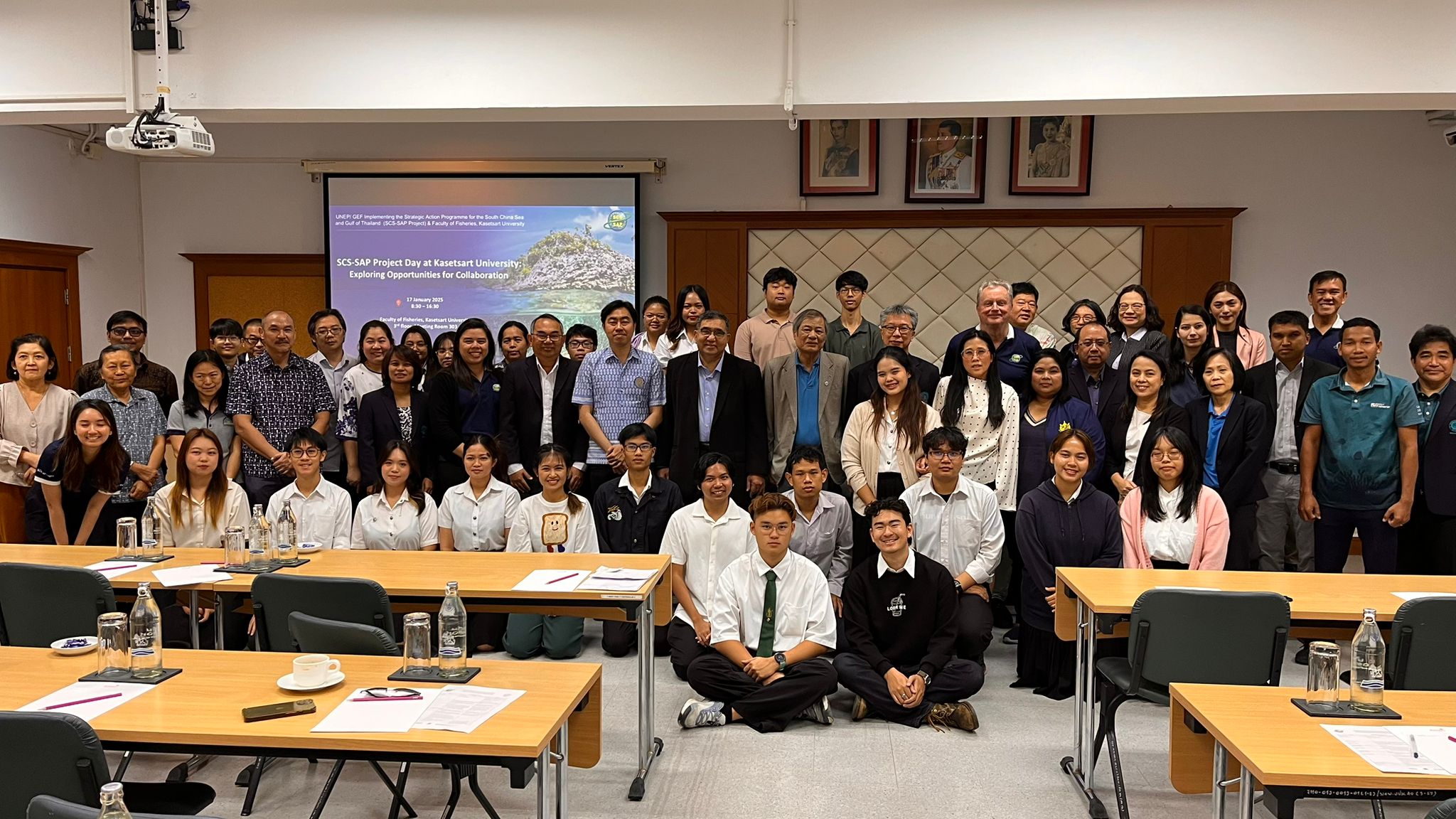
The day kicked off with a compelling presentation by SCS SAP Project Manager Anders Poulsen, who painted a striking picture of our coastal dependencies: 15% of humanity lives near coastlines, with a staggering 40% relying on marine and coastal biodiversity for their livelihoods. With the blue economy projected to surge from $2 trillion to $3 trillion by decade's end, Poulsen's reference to recent climate-related coastal disasters in Thailand drove home the urgency of sustainable ocean management.
SCS SAP Project Regional Scientific Coordinator Dr. Vo Si Tuan's subsequent deep dive into Large Marine Ecosystems (LMEs) built upon the project's established work with COBSEA (Coordinating Body on the Seas of East Asia) and its commitment to addressing the triple planetary crisis. His presentation of the South China Sea LME's impressive 3.5 million square kilometer expanse, bordered by nine countries, illuminated the complex challenges facing the region. From mangrove degradation to coral bleaching, each threat was meticulously ranked and explained, demonstrating the kind of scientific rigor that had been highlighted at the Special Forum organized by the SCS SAP Project during the 2nd UN Ocean Decade Regional Conference in Bangkok.

The SCS-SAP implementation, a $98 million initiative, aims to protect marine and coastal environments across the SCS LME through a comprehensive, integrated, multisectoral approach led by six Southeast Asian countries, namely Cambodia, China, Indonesia, Philippines, Thailand, and Vietnam. SCS SAP Project is funded by the Global Environment Facility (GEF) and implemented by the United Nations Environment Programme (UNEP). The programme focuses on habitat restoration, including mangrove replanting, coral reef protection, and seagrass conservation, incorporating community involvement and traditional ecological knowledge to ensure sustainable resource use. The SCS-SAP Project collaborates with organizations like COBSEA, PEMSEA, and IUCN to address climate change, biodiversity loss, and marine pollution through initiatives such as Marine Protected Areas and Marine Spatial Planning. The project also supports sustainable fishing practices, alternative livelihoods, and pollution reduction to enhance community resilience.
The afternoon's interactive session proved to be the day's highlight, with students and faculty members engaging in dynamic discussions about innovative approaches to marine conservation. The enthusiasm was palpable as conversations ranged from blue economy initiatives to potential student internship opportunities.
This gathering represented more than just a project introduction; it marked the strengthening of an already robust partnership between SCS-SAP and Kasetsart University. With collaborative opportunities spanning technical expertise, innovative solution development, and regional networking – and backed by the project's ambitious targets for establishing operational financial facilities by December 2025 – the stage is set for meaningful action in addressing regional marine conservation challenges.
As the South China Sea LME faces unprecedented challenges, this fusion of academic expertise, youth engagement, and regional cooperation offers a beacon of hope for sustainable marine resource management. The success of this Project Day not only demonstrates the SCS-SAP Project's commitment to inclusive stakeholder engagement but also signals a bright future for marine conservation in Southeast Asia, particularly as the project works toward its goal of implementing 18 grants and protocols across national, local, and community levels by December 2026.
Raksita Prasongphol, a Marine Science student at Kasetsart University, emphasized the urgency of climate action: "As marine science students, we have a responsibility to protect our ecosystems. We need to help people understand that climate change impacts all of us. If we don't act now to preserve our marine environments, future generations of scientists won't have anything left to study."
Sirakan Supundit, who focuses on oceanography and Earth sciences, shared his vision for applying his studies: "Today's session opened my eyes to new possibilities in ocean science. While my work in oceanography might not directly address biodiversity, I see how this knowledge is crucial for ecosystem conservation. It's all connected to our daily lives, and I'm excited to contribute to these projects, whether through research or pursuing advanced studies."
Waris Kobayashi, studying a Master’s in Marine Science has witnessed firsthand the challenges facing Thailand's coral reefs: "During my internship at Koh Mai Kai, I saw how coral bleaching is affecting our reefs across Thailand. While these ecosystems are still healthy in some southern areas, human activities like excess nutrient runoff and eutrophication pose serious threats. That's why creating protected areas is so crucial – we need to give these delicate ecosystems a chance to survive away from human pressures."
Watch their interview on the SCS SAP Project Facebook.
Dr. Suriyan Tunkijjanukij, Dean of Faculty of Fisheries, emphasized the Faculty's multifaceted approach to marine conservation: "The Faculty of Fisheries is deeply committed to sustainable resource utilization. Through our five departments, particularly Marine Science, Fisheries Biology, and Aquaculture, we're working to ensure proper management of both fishery resources and their habitats. Our partnership with SCS SAP Project allows us to connect regional initiatives with classroom learning, giving our students real-world exposure to international conservation efforts."
